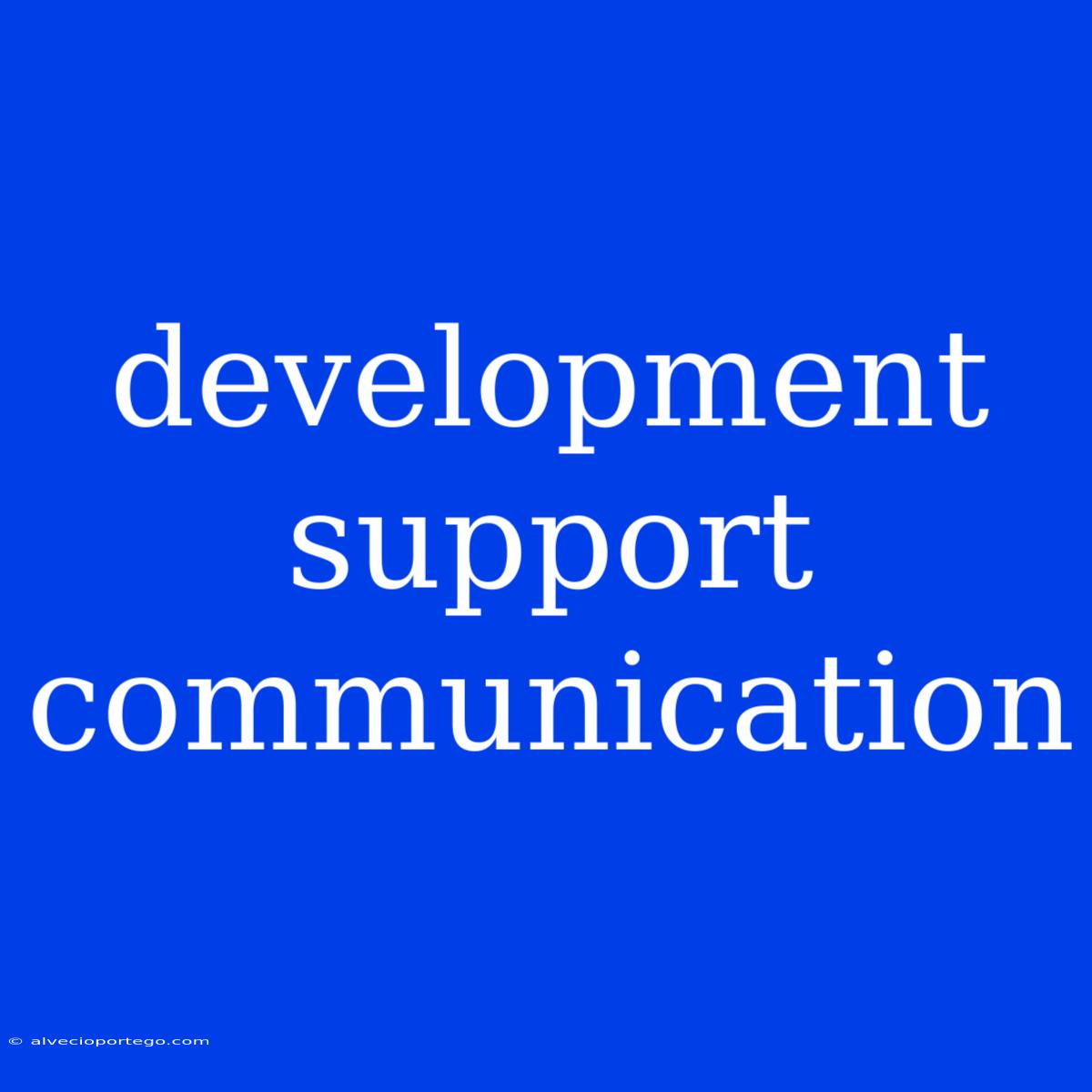Development Support Communication: Building Bridges for a Better Future
Development Support Communication (DSC) is a strategic approach that leverages communication to achieve development goals. It goes beyond simply spreading information; it focuses on building understanding, fostering dialogue, and promoting positive change within communities.
Why is DSC Important?
- Effective Dissemination of Information: DSC ensures vital information about development initiatives reaches the intended audience. This includes programs, policies, and opportunities, empowering communities to actively participate in their own development.
- Encouraging Participation and Ownership: By engaging with communities, DSC fosters a sense of ownership and responsibility for development initiatives. This leads to increased participation and long-term sustainability of projects.
- Addressing Misconceptions and Barriers: Often, misinformation and cultural barriers hinder the success of development projects. DSC plays a vital role in debunking myths, promoting dialogue, and building trust between communities and development agencies.
- Advocating for Change: DSC can effectively advocate for policy changes, raise awareness of critical issues, and mobilize resources for sustainable development.
- Promoting Collaboration: DSC helps build partnerships between various stakeholders, including governments, NGOs, community groups, and individuals. This collaborative approach strengthens the effectiveness of development programs.
Key Principles of DSC:
- Community-centered: Prioritizing the needs and perspectives of target communities.
- Participatory: Encouraging active engagement and feedback from communities.
- Culturally sensitive: Respecting diverse cultural norms and values.
- Evidence-based: Utilizing research and data to inform communication strategies.
- Ethical and transparent: Adhering to ethical principles and ensuring open communication.
Tools and Techniques in DSC:
- Public education campaigns: Using various media channels to raise awareness and educate the public.
- Community dialogues: Facilitating conversations and forums for community members to share their concerns and ideas.
- Capacity building: Training community members and stakeholders on communication skills and development issues.
- Social media and digital platforms: Leveraging digital tools to reach wider audiences and engage with communities.
- Media advocacy: Working with media outlets to amplify development messages and stories.
The Impact of DSC
Effective DSC can lead to:
- Increased awareness and understanding of development issues.
- Improved participation and ownership in development initiatives.
- Enhanced community capacity to address their own development needs.
- Greater accountability from development agencies and governments.
- Positive social and economic transformation in communities.
Moving Forward
DSC is an essential component of achieving sustainable development. By prioritizing community engagement, building trust, and fostering collaboration, DSC can effectively contribute to a more equitable and prosperous future for all.

